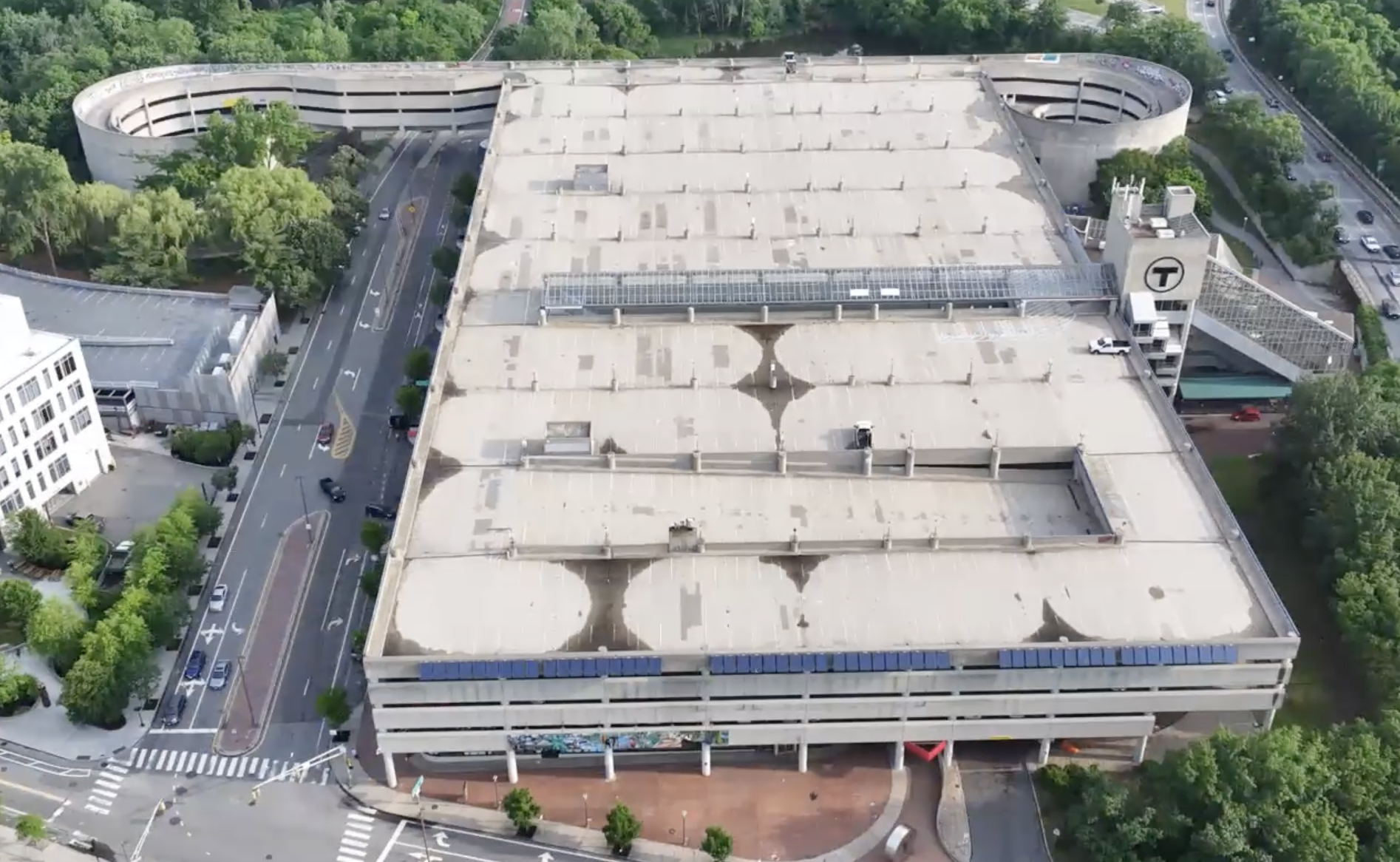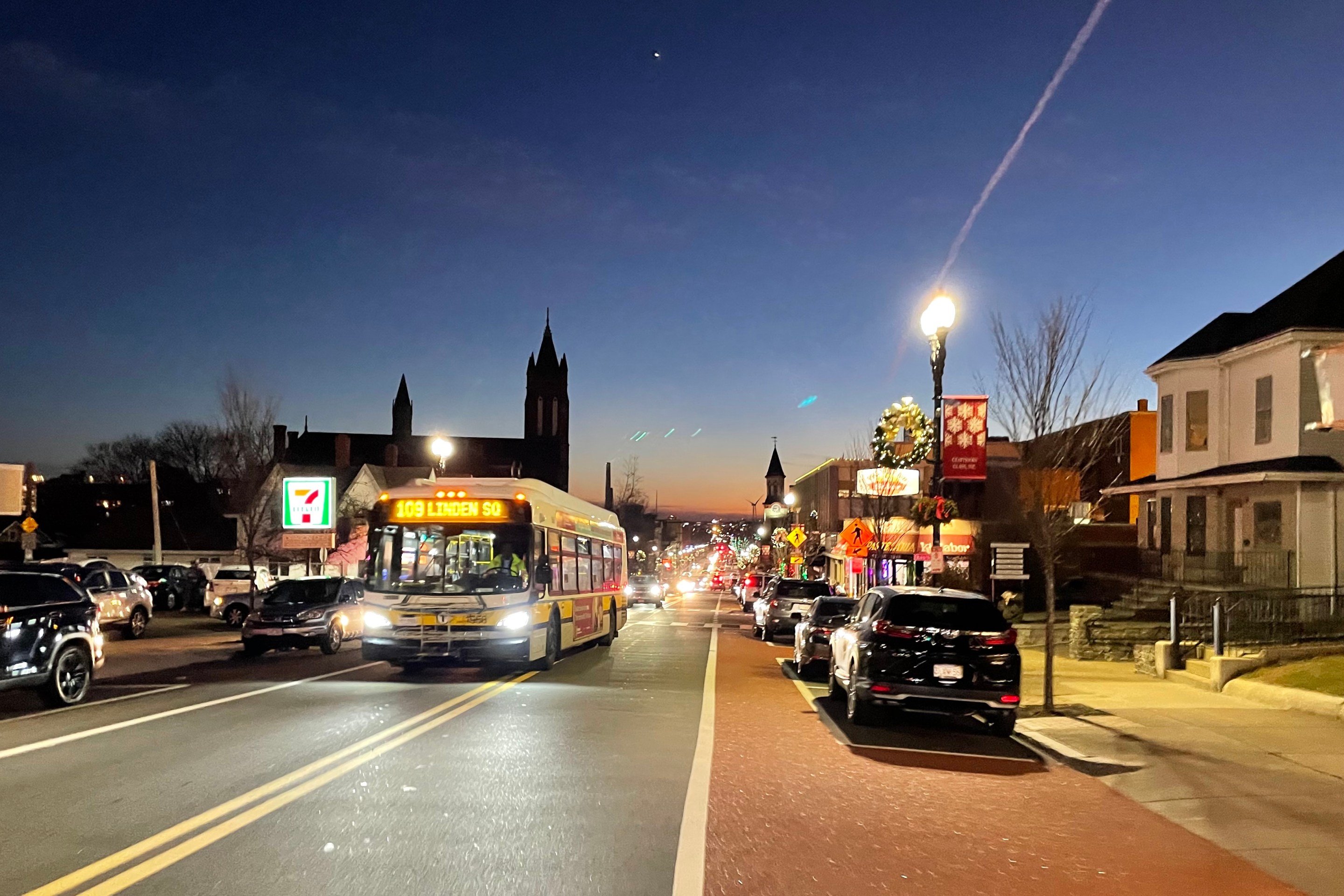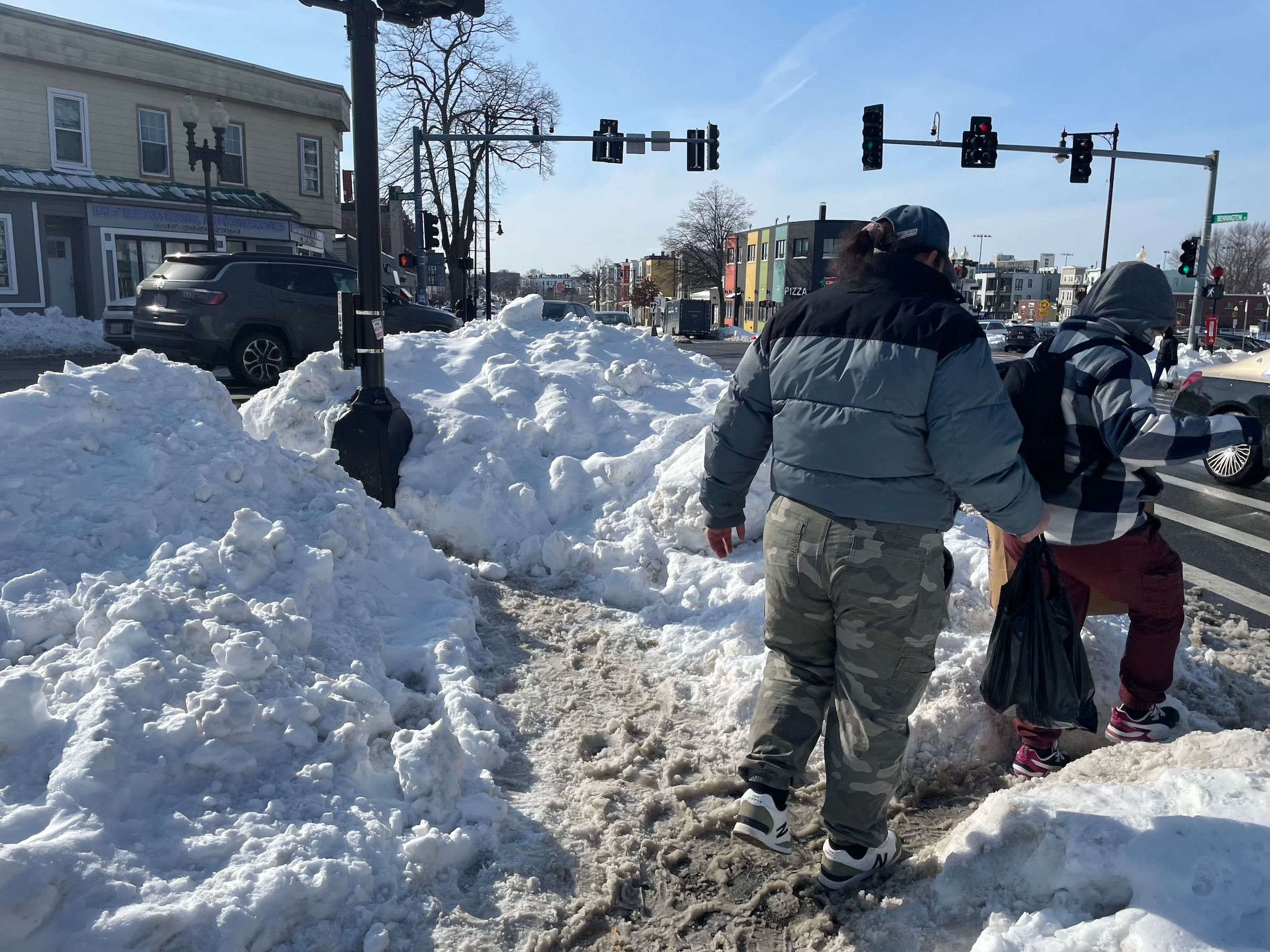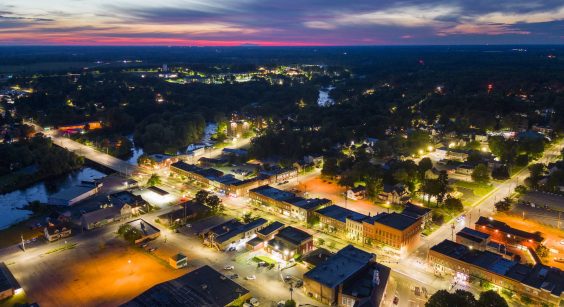The MBTA's massive parking garage at Alewife station is falling apart and needs to come down – and the MBTA is kicking off a search for real estate developers to build something better in its place.
Earlier this month, officials from the T and the City of Cambridge hosted an informational presentation on the project, stressing that they are open to many possibilities for what may replace the garage.
"No idea is a bad idea," MBTA General Manager Phillip Eng said. "We want to let people know, don't think about we've done business before; think about what you think this partnership could be. And when we form those partnerships, let's think outside the box, let's think creatively."
Site includes 30 acres of land
The existing Alewife station includes a massive 5-level parking structure with over 2,700 parking spaces over the Alewife Red Line station, which sees about 5,000 passengers per day.
But the T is also offering up adjacent land it owns along the Fitchburg Line commuter rail right-of-way, which could accommodate additional development on platforms over the tracks.
The City of Cambridge is already working on new zoning rules for the district. The city adopted a new Alewife District Plan in 2019, and in 2023, the Cambridge City Council adopted new zoning rules for the district south of the Fitchburg Line commuter rail tracks that would allow new residential buildings up to 12 stories tall.
New zoning rules for the area north of the Fitchburg Line tracks – including the MBTA station site – are next on the city's agenda. Presentations from the city's rezoning working group suggest that the city is open to allowing even higher-density housing near the T station:
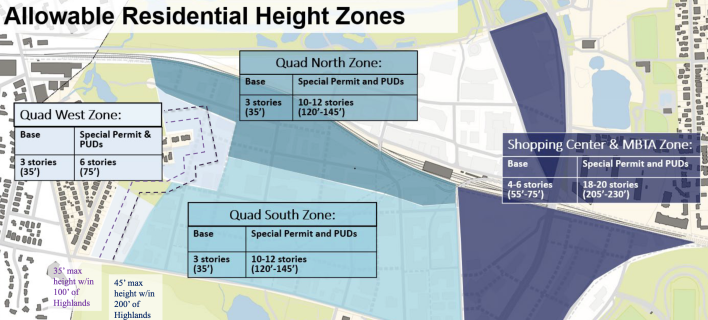
"When we did that rezoning work for the quadrangle (south of the Fitchburg Line), we found it was really helpful to have the people who were actually going to build at the table along with rest of the community and advocates," Iram Farooq, Cambridge's Assistant City Manager for Community Development, told StreetsblogMASS last week. "So it really can be a more tangible discussion with a reality-check that comes from the developers, and the zoning that emerges from that has a much higher likelihood of being workable."
"Having the T as part of the community engagement and the more refined thinking on zoning is going to be important, and hopefully their development partner is also at the table," Farooq added.
Parking vs. housing
The MBTA's 2023 capital needs assessment found that parking facilities along the T's rapid transit network collectively needed $251 million worth of repairs.
Scott Bosworth, the MBTA's Chief of Transit-Oriented Development, stressed that the T was no longer interested carrying the considerable costs of owning and maintaining any parking on the site, and expressed openness towards considerably reducing the amount of parking from what exists today.
"We envision our partner owning and operating our parking in the future. We think that's they way to go, but it's not set; in fact, we don't even know exactly how many spaces we want to develop here. We want to work with the city... to determine what the number of parking spaces should be," Bosworth told developers.
Local research suggests that abundant off-street parking in residential developments has a negative influence on transit ridership, and that adding off-street parking in a development reduces the amount of real estate and financial resources that are available for new housing.
That means there's some tension between the T's desire to serve its existing park-and-ride customers and the T's desire to attract new riders from transit-oriented housing.
In spite of the fact that the station currently consists of a massive garage surrounded by strip malls and highway blight, more people already arrive at Alewife station on foot than in a car, according to the MBTA.
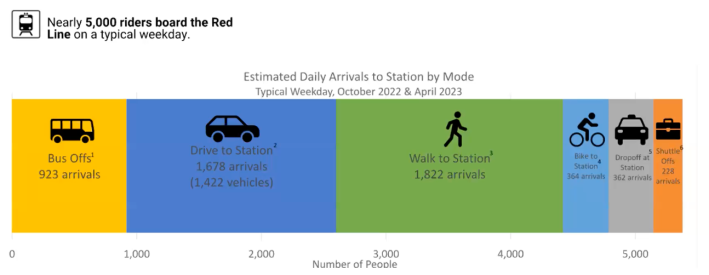
The City of Cambridge will likely weigh in on how much parking should be on the site during its rezoning process for the area.
The Alewife area is already congested with car traffic, and in order to ensure that the new development won't add to that congestion, Farooq says that the zoning discussions for Alewife could set a maximum cap on how much off-street parking the city will allow.
New commuter rail stop, street connections also on Cambridge's wish list
In addition to building more housing, Farooq says that the city has a few other priorities for any new development at Alewife.
One goal is to improve the area's resiliency to climate change – the adjacent Alewife Brook, which flows northeast into the Mystic River, is already prone to flooding, and there are fewer shade trees in the Alewife area compared to other parts of Cambridge.
The city also wants to improve the connectivity of the street grid in the district, with new connections over the Fitchburg Line and across the Department of Conservation and Recreation's highways, which are the neighborhood's biggest sources of air pollution.
"It’s one of the parts of the city that has the most barriers to people being able to move freely around, including being able to get to the Red Line," Farooq told StreetsblogMASS. "So it ends up being more auto-oriented, in spite of having really rich access to transit. Enhancing connectivity is really a top priority. "
Farooq says that the city would also be interested in partnering with the T and the site's future developers to add a new Alewife commuter rail stop on the Fitchburg Line.
"An Alewife commuter rail stop has been part of the city’s vision for a really long time," Farooq said.
